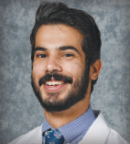Although significant progress has been made to reduce the gap in health outcomes of minority or underserved patients, meaningful steps forward still need to be made to improve health disparities. Countless studies have shown, in general, that affluent White individuals have better health outcomes than Black and Latin American individuals of any economic demographic. Despite socioeconomic status, race, or ethnicity, cancer doesn’t discriminate. A rich person and a poor person who smoke have a similar chance of developing lung cancer.
Our health-care system was conceived to grant everyone access to health care.
Typically, people with full-time jobs will avail of employer-based health insurance, whereas those who require additional support because of disability, underemployment, or older age are intended to have medical coverage under Medicare or Medicaid. The idea is reasonable, but the way it plays out is unnecessarily complex, leaving hundreds of thousands of people uninsured or underinsured.

Nithya Krishnan, MD

Kimberly Boldig, DO

Kathryn Desimone, PharmD

Ryan Rodriguez, MD
Scope of the Chemotherapy Crisis
The current chemotherapy crisis has placed a chokehold on practicing oncologists and the patients we treat. Two common chemotherapy agents—cisplatin, and carboplatin—are in shortage because of a manufacturing plant shutdown in India. This situation is further perpetuated by supply-and-demand mismatch, leading to stockpiling of product and more dramatic shortage. The U.S. Food and Drug Administration and federal government have no guidelines regulating production to sustain need. Additionally, there is little incentive to produce these pharmaceuticals because of the relatively inexpensive cost of the generic product.
This shortage affects chemotherapy regimens of patients across the country. Approximately 93% of cancer centers have reported a shortage of carboplatin, and 70% have a shortage of cisplatin. Because of the shortage, many physicians have rationed the medications. Others have substituted for less effective or more expensive alternatives.
The chemotherapy shortage that has affected our patients globally has sharpened the racial and socioeconomic dichotomy, leaving the decision of who gets curative chemotherapy to market forces rather than being a patient-centered decision.
Chemotherapy shortages are no stranger to the oncology practice landscape. The current halt in cisplatin manufacturing caused a worldwide ripple effect as 50% of the U.S. supply was disrupted, leaving oncologists and pharmacists scrambling to get enough drug for their patients. As a result, oncologists pivoted to using carboplatin, manifesting a reciprocal shortage. A survey of cancer centers obtained by the National Comprehensive Cancer Network revealed that more than 90% of centers have experienced a shortage of cisplatin or carboplatin during this period.1
Real-Life Efforts to Provide Access to Cancer Medications
Our institution is a safety net hospital that treats underserved and uninsured patients. Many of the patients treated at our hospital have advanced cancer diagnoses as a result of limited access to health care, mental illness, low health literacy, transportation difficulties, and limited access to basic necessities. These health disparities are magnified by chemotherapy shortages, resulting in worse health outcomes in this patient population.
Our patients frequently require grants for free medications or require us to use pharmacies that offer less expensive generic medications, such as Mark Cuban’s Cost Plus Drugs. The business model of Cost Plus Drugs is to offer pharmaceuticals at a less expensive price by cutting out the middlemen and buying direct from manufacturers. The pharmaceuticals are currently priced at cost with a 15% profit margin, and the company is transparent about its practices. The pharmaceuticals are available to anyone.
According to Chief Executive Officer and Founder of Cost Plus Drugs, Alexander Oshmyansky, MD, PhD, the hope is to expand its services and also start manufacturing its own products via robots at a plant in Canada. What does Mark Cuban have to do with chemotherapy? “We started this company as an effort to disrupt the drug industry and to do our best to end ridiculous drug prices,” he said. We couldn’t agree more.
One patient in our clinic has a curable gastrointestinal tumor that could be surgically resected if we are able to shrink its size. Imatinib, a drug that can be used to shrink this type of tumor, generally retails at $9,657.30 for 30 tablets. The same drug through Cost Plus Drugs costs $32.70 for 30 tablets at the same dose. This pharmacy makes it possible for our patient to have a chance to cure her disease. The company is not providing charity, offering subsidies, or discounting the price. This is simply the production price of the drug, with a 15% margin for company profit. The balance of $9,624.60 of the typical retail price is being distributed among middlemen, and this cost often prevents patients from receiving standard-of-care treatment.
The market has consolidated such that three wholesalers account for about 90% of generic drug purchases: Cardinal Health, McKesson, and AmerisourceBergen. The drug manufacturing and distribution practice is a disharmonious entanglement of various gatekeepers and middlemen, creating a huge chasm between the drug and the patient at the end of this very complicated line.
The critical part of this story is the drugs on shortage are not rare drugs used after all other options have been tried. These first-line drugs are used for curative-intent treatment. Besides the real-time effects felt from the current chemotherapy shortage, we know these shortages may also hamper chemotherapy research and future clinical trials.
What Next?
We don’t have an answer for how to manage the current chemotherapy shortage or the ones that are surely to follow. However, we believe part of this answer lies in dismantling the conglomerate wholesale schema and the multiple middlemen players who make chemotherapy difficult to obtain and cost-prohibitive for our patients. We can look to Mark Cuban’s Cost Plus Drugs as one of the most impactful players in the field of direct drug sourcing to provide at-cost, life-saving medications for our patient population. Although we are hopeful this company will expand its role to production, we also hope there are other fail safes to prevent this crisis from spiraling out of control. These safeguards include expanding domestic production to defray the effects of overseas supply chain disruptions and regulating domestic supply of certain life-saving medications such as cisplatin and carboplatin among others.
DISCLOSURE: The authors reported no conflicts of interest.
Dr. Krishnan is a fellow in hematology/oncology (PGY-6) at the University of Florida Cancer Center, Jacksonville. Dr. Boldig is a resident in the Department of Medicine at the University of Florida College of Medicine, Jacksonville. Dr. DeSimone is a pharmacist at the University of Florida Health, Jacksonville. Dr. Rodriguez is a resident in the Department of Surgery at the University of Florida College of Medicine, Jacksonville.
Disclaimer: This commentary represents the views of the author and may not necessarily reflect the views of ASCO or The ASCO Post.
Reference
1. NCCN Releases Statement Addressing Ongoing Chemotherapy Shortages; Shares Survey Results Finding More than 90% of Cancer Centers are Impacted. Available at https://www.nccn.org/home/news/newsdetails?NewsId=3970. Accessed November 27, 2023.

